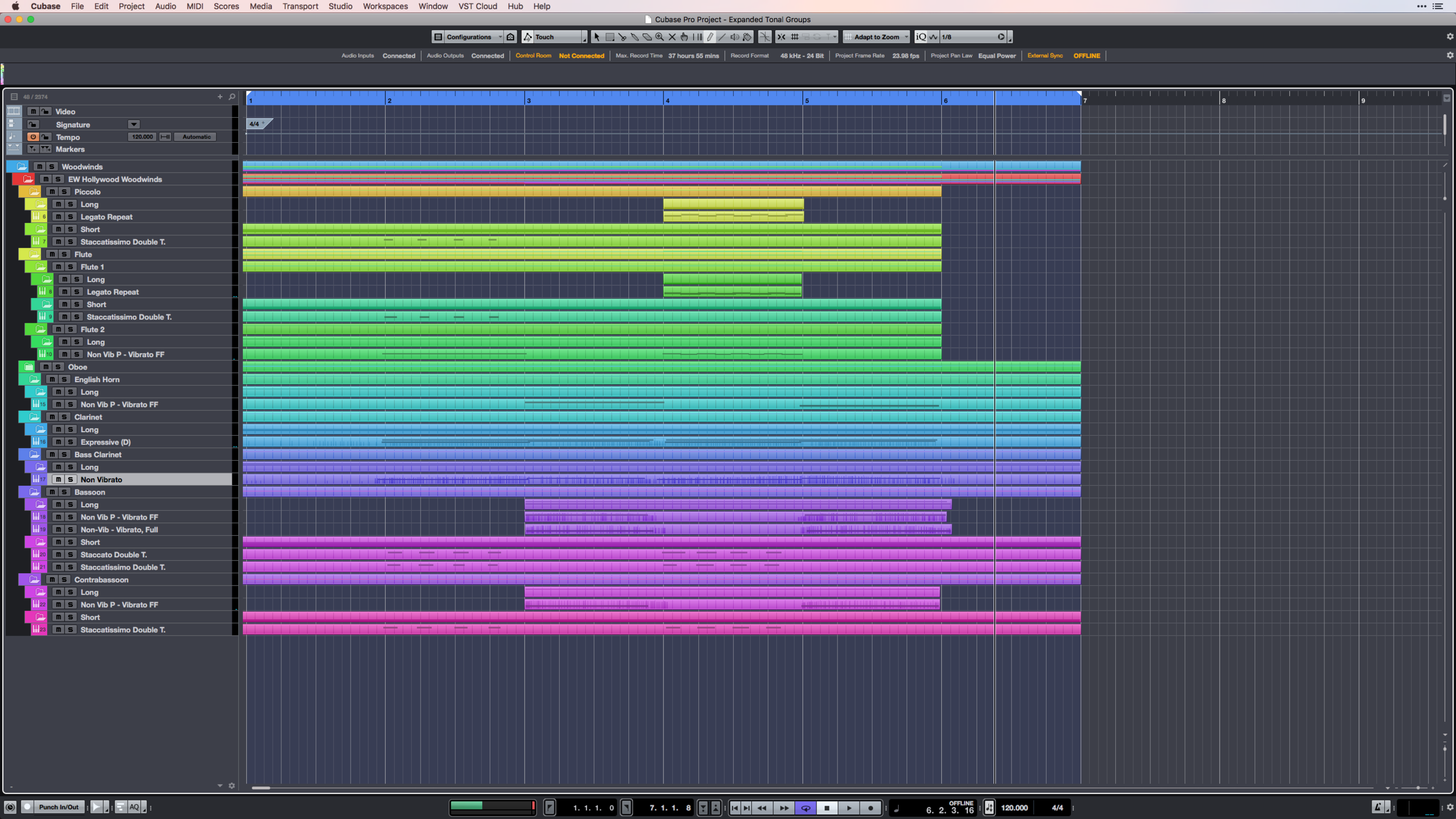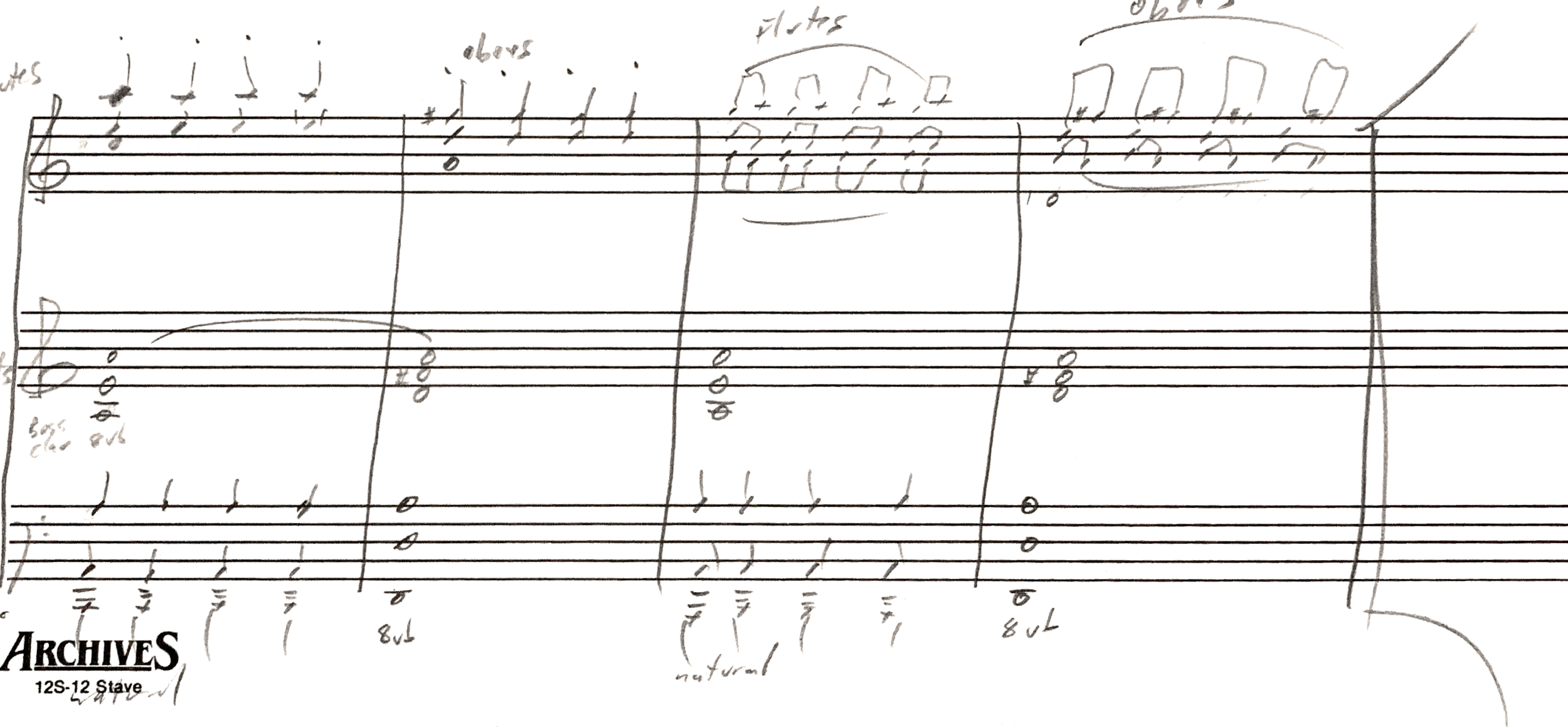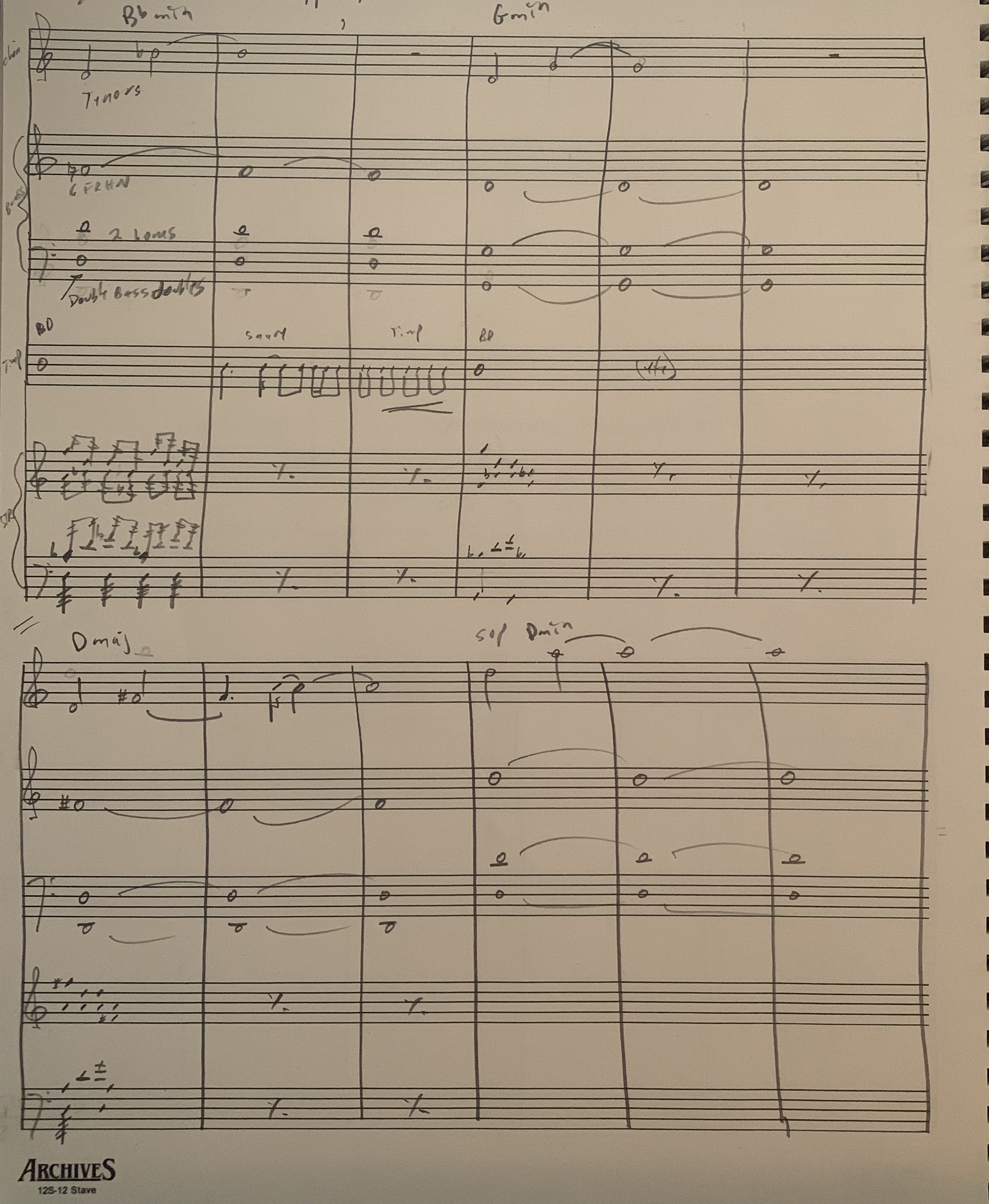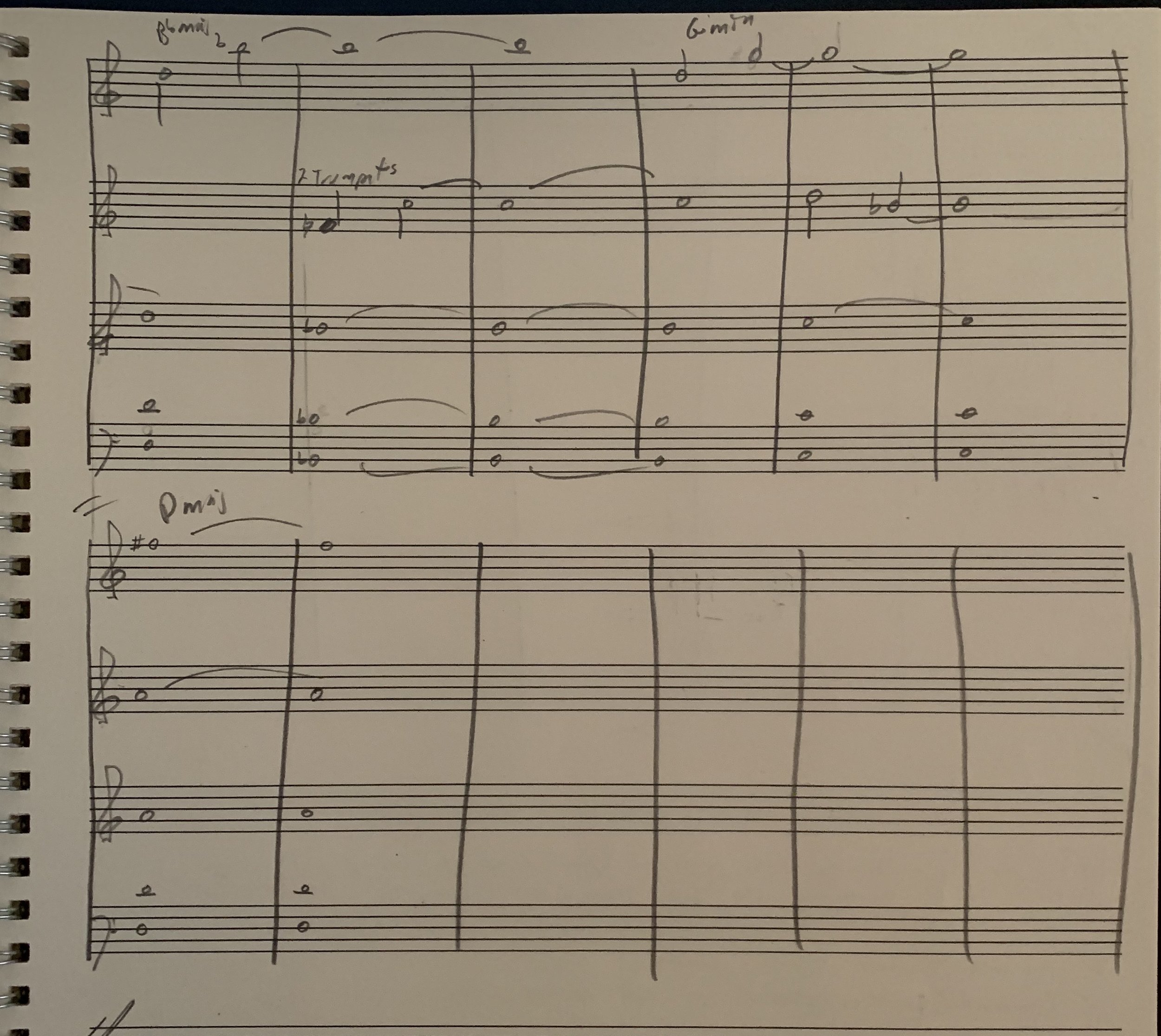Let’s start With something really important to you: Your Birthday.
Your birthday is the one day of the year where it’s all about you. It should be the day where you get what you want, right? I think it’s okay to get spoiled by your loved ones, just a tiny bit.
Let’s say you start your day slowly. You wake up, stretch, lazily walk to the kitchen, and make some coffee. Now, let’s say you’ve fully woken up and decide to check your messages. It is your birthday after all, and people should be thinking about you, right?
From here, let’s insert one of two scenarios, in turn. Let’s say the first scenario plays out like this:
When you check your messages, you find that you've received about 100 birthday wishes, all at once. Let also say that these messages seem a little... generic. Each message is basically some variation of “Happy Birthday (your name here)!” It’s almost suspicious that all of these people know it’s your birthday, but perhaps a bit insane that the messages are roughly the same length and tone. Let’s also say that in this scenario that you only receive these generic birthday wishes, the entire day.
Sounds like a bummer, right?
Okay, let’s put the second scenario into play:
When you check your messages, you see that you have received a text from your best friend. It says: “Call me as soon as you wake up!” You call your best friend. He/she is really happy to connect with you:
“Well, good morning! Happy birthday! Here’s what’s gonna happen: I have conspired with three other friends to make your birthday the best day ever. We have decided that we are going to do everything that you want to do, because it’s your birthday and we want to celebrate you. If you want to go to an amusement park, we’re in! If you want to go to brunch and then a wine tasting, we’re in! If you want to go bungee jumping or sky diving, we’re in! Or, If you want us to scoop cat litter, walk your dog, order you all the food for delivery, and leave you alone, we get it! Were in!
The point is, this is your day, we love you, and we want to pamper you with luxury. Oh, and by the way, you’re not going to pay a dime. We don’t care how expensive it’ll be! What would you like to do for your birthday, today?”
Sounds pretty awesome, right? Now for an obvious question: Between these two scenarios, which one has the most potential for a great memory?
Neuroscience and Memory
Stay with me; I’d like to share an passage about memory and emotion from Dr. Joe Dispenza from his wonderful book Becoming Supernatural:
Emotions are the chemical consequences (or feedback) of past experiences. As our senses record incoming information from the environment, clusters of neurons organize into networks. When they freeze into a pattern, the brain makes a chemical that is then sent throughout the body. That chemical is called an emotion. We remember events better when we can remember how they feel.
Dr. Joe Dispenza, Becoming Supernatural
The gist of this passage is that vividly remembered events are events we had a deep emotional reaction during. In other words, when we have a deep emotional response to an event, we are more likely to remember that moment than not.
This idea begs exploration and some more clarification. Think back in your life and search your memories. What are your most important events in your life? How do you remember them? What emotions did they create in you? Does one event stir you more than another, and why?
Because of how the brain works, how neurons create patterns, how the chemicals in the brain are sent throughout the body, we remember deeply emotional events far more than events we just passed through.
Taking this a little further, every single director I’ve met had at least one movie they could call their turning point. It was the movie that solidified what they were going to do with their lives. After watching that fateful movie, they knew they had to spend their entire lives doing film. It’s a moment that is potent and emotional for them. They can probably recall what they were feeling during the movie, where they saw it, who they were with, and possibly even what they were wearing.
I think it’s more than reasonable to assume that the more a story or a film resonates with the viewer emotionally, the more likely he/she is to remember it.
Chances are, one of the things that made you into a filmmaker is how magical that film was, how you hard you got hit, how deeply it resonated with your soul. Seeing that movie likely make you think, “I have to do my own movies. Have to!”
Then the big question rears it’s ugly head: How do you do it? Just how do you make a satisfying movie? Lets assume that you spent the time to learn the basics of filmmaking. From there, how can you make your movie special, magical, and potent? I’m so glad that there isn’t an answer to this question, because that would take the magic out of movies so fast. But I do think that there is an important point here, lingering on the edge of our awareness, that’s worth exploring further.
What Emotional Impact Means for Memory
Let’s bring it back to the birthday scenes. Between the two scenarios, what was different? In the first one, you received plenty of messages that it was your birthday, but could you trust that a real human being sent each one to you? After all, it’s easy to set up an auto-birthday texting/Facebook/Twitter service. There are plenty of them out there. But, in that scenario, something seems… off.
No matter how many messages you get in scenario #1, real or auto-generated, they will never hit you as hard as the second birthday scenario could. After all, your best friend in the world made your day super special. He/she cared enough about you to tell you what your day could be like, how it could be shaped, how you had the control, how you could just focus on you, and how you didn’t have to take care of anyone else. Someone else was taking care of you, period.
It is my very strong opinion that the movies that we remember are exactly as warm, inviting, and awesome as our best friend doing us a solid on our birthday.
Conversely, it is also my very strong opinion that the movies that we forget instantly are as cold, ruthless, and antiseptic as receiving 100 auto-generated happy birthday well-wishes on our birthday.
The viewers of your movies are no different, also in my very strong opinion. They don’t want to be lied to. They want you to tell them how special they are, and they want you to work hard to make their experience special, too. And frankly, without the viewer, you’re not really a director.
I’m not suggesting that you can’t challenge the viewer, of course. But, if a viewer buys a ticket to see your movie, then it’s your responsibility to be the guide for their experience. It’s your responsibility to make the experience something the viewer will remember, vividly.
The Robot Actors vs The Real Actors
The Experiment
So, what contributes to making a movie memorable? How can we deliver the emotional impact that can make an impression on the viewers? As a filmmaker, how can you assure that your movie has as much potential for being remembered after the audience leaves the theater?
For a start, we can’t lie to the viewers. They are going to know it, and they will shut off their minds to the experience if they aren't convinced. Anything that takes them out of the movie has got to go. And, we certainly cannot try to pull the wool over the viewer’s eyes by covering our asses either: “Take my word for it! That wasn’t a special effect! This is totally real! We actually created a real __________ and it cost us millions of dollars to pull off!”
As much as possible, we have to take care to present a story in a way that lands, emotionally, deeply, viscerally. To get there, we often work with the talent that’ll give us the best take, the takes that will suit the scenes and the movie in general. But, it is in the act of preparation before the scene that human beings can bring what auto-generated processes and robotics will always fail at: Showcasing their humanity.
The process of preparing the talent to have the best possible take is also called priming by Yale professor John Bargh, who is considered an authority on the unconscious mind. Part of his research is based on what happens when we prime the unconscious mind for a better result. The idea is that we frame the experience of the talent before the take happens. We may ask them to feel a particular way, imagine a story, prep them to take something from their lives and bring it to the movie. This is crucial.
When we prime the talent, they can temporarily live in the world of the story. They can act from the world of the story. They play instruments from the world of the story. They feel the same emotions that the characters do from the world of the story. Their immersion into the story creates a powerful gravitational pull to the viewers. Priming the talent on a film can help an audience connect and feel the story beyond the story. The viewers will be compelled to experience the story viscerally rather than intellectually. They will understand the events in a way that defies any sort of rational explanation. They will walk away from the theater still humming from the experience of being inside the film.
To test the idea of priming, that human beings could deliver the story beyond the story better than robots or auto-generated processes, I decided to pit three actors against each other in a race to deliver the most truthful, immersive, and memorable performance. One is a trained voice over actor in Los Angeles, another is a trained stage and film actress in a Austin, and the final actor is a robot.
My hypothesis was that I could prime two trained actors to deliver a more memorable and emotionally impactful performance than a robot. Surely, no robot could possibly beat two trained actors at delivering an emotionally impactful performance… or could they?
The Text Used
Here is the gibberish text I chose for all performances. It means absolutely nothing. This text was auto-generated by a random new age sentence generator at http://sebpearce.com/bullshit/:
Nothing of importance takes the world for granted. We must learn how to lead ethereal lives in the face of stagnation. Our conversations with other beings have led to a deepening of ultra-endless consciousness. Reality has always been buzzing with entities whose third eyes are enveloped in beauty. We are in the midst of a self-aware summoning of will that will clear a path toward the world itself.
The Robot Actors
Two Online Voice Generators
Our first two performances came from two robot actors (I needed some robot variety). The first performance came from a robot voice located at https://www.text2speech.org/
I couldn’t tell the robot what kind of performance I wanted. I couldn’t prime it. I couldn’t ask it exactly what I wanted it to feel like. Therefore, the first performance sounds incredibly flat to me*:





















Ever wonder why action movies feel like a thrilling rollercoaster while indie films resemble a leisurely stroll? It’s all in the music. Film composers are like time wizards, making you forget time entirely or painfully aware of every second. Who knew soundtracks could be so dramatic?